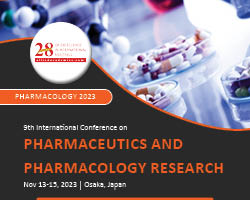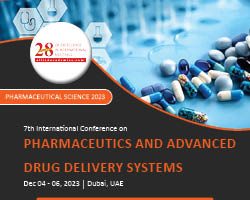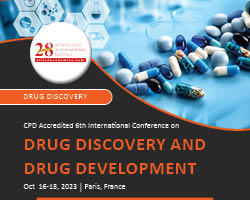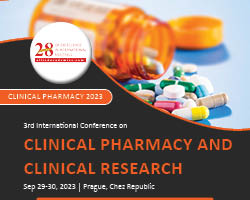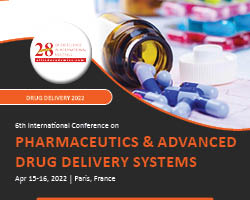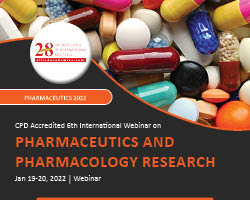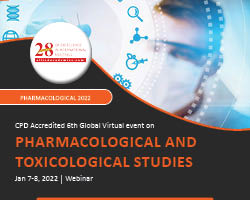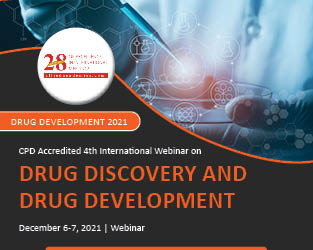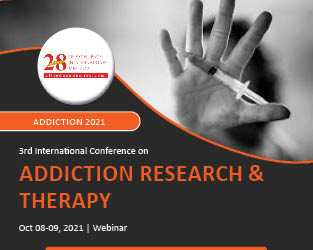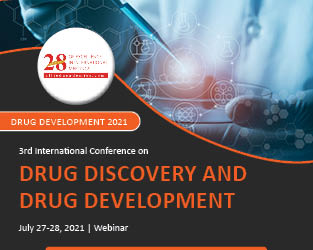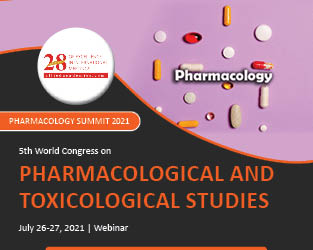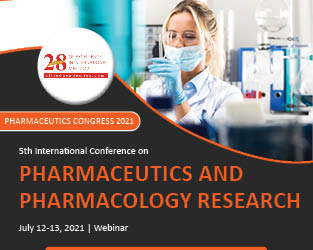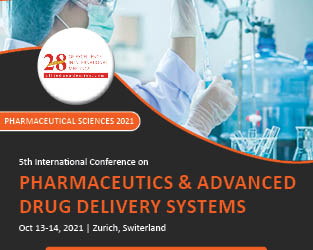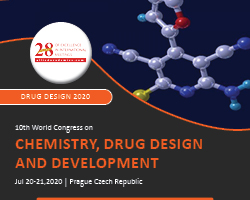2024 Conferences
2023 Conferences
2022 Conferences
2021 Conferences
2020 Conferences
GlobalPharmaceutical Sciences Conferences:
Weextend our sincere gratitude towards your support for the successfulconferences all these years and welcome you all for the upcoming conferenceswith all trending researches in the field of Pharmaceutical sciences.
“Withthe challenging motive of sharing the vision and solutions to the issues arisesin the field of drug design, delivery and action, and to navigate the future ofthe Pharma world to break the barriers and empower the success, AlliedAcademies organizes the Pharmaceutical conferences pan world forpast 2 decades.”
Pharmaceutical Science Conferences are theglobal platform to reveal such vision and solution by gathering the worldeminent research scholars for all the complications that arise in this field.This forum initiates the transfer of verbal solutions to a feasible technicaland beneficial framework.
Thepharmaceuticalscience conferences include various disciplines such as Pharmacology,Pharmacodynamics, Pharmacokinetics, Pharmaceutical Toxicology,Pharmacogenomics, Pharmaceutical chemistry, Pharmaceutics, Pharmacognosy,Pharmacoeconomics. Pharmaceuticalscience conferences are also concerned with the clinical researches, drugdiscoveries, drug designs, drug delivery mechanism and systems, action of drug,drug analysis, biosimilars, BABE studies, antibiotic forensic research,phytochemistry and natural products, novel drug delivery systems, GMP, GCP,analytical & bioanalytical techniques, pharmaceutical regulatory affairsand other pharma related studies.
Meetand connect with the global network of scientists, researchers, experts, healthpractitioners, surgeons, clinicians, and, founder, CEO and all otherrepresentatives of pharmaceutical organizations.
Allthe Pharmaceuticalscience conference activities have been planned and implemented by theadvanced policies and requirements of the Board Members of the AccreditationCommittee.
ThePharmaceuticalscience conferences organized by AlliedAcademies are accredited with CME and CPD Credits. A CME certificateenables an expedient career, students avail greater benefit with thiscertification as it indicates the knowledge in advanced research in therespective field. A CPD certificate enables the professionals to authorizetheir expertise to a narrow and focused approach to break the barriers andcreate possibilities to attain success in the respective field. Pharmaceuticalresearches completely showcase the value of innovation to allpharma-professionals. It also values the focus of patients since clinicaltrials of drug development, effect and mechanism of the drug inpatient at eachstage will incorporate various analysis and result in patient-focused results.
Ascompared with all other sectors the pharmaceutical industry depends more ontheir Research and Development department. Thus, the PharmaceuticalScience conferences organized by AlliedAcademies not only create a platform to exchange novel ideas to theaudience but also to spread technical and research advances in the multipledisciplines of pharmaceutical sciences.
We are very proud and honoured to announce that members of our committee will be hosting the Pharmaceutical Sciences conference, which will provide a meaningful framework for meaningful interactions, engagement, and connection.
As stated in the title, the purpose of the meeting is to bring together scientists from academia and industry to present cutting-edge research on advancements in polymer science and technology in all of its main aspects, with a special emphasis on those aiming to preserve and improve the health of the planet and of people.
The drug discovery industry has become such a competitive market that finding better drug discovery technologies is a constant challenge. This industry must discover and develop novel medicines for a wide range of diseases in a market that is likely to face increased regulatory challenges, pricing pressures, and a variety of other bottlenecks.
Eminent keynote speakers and delegates from academia and industry will share their expertise, and opportunities for students, other fellow researchers, academicians, and industrialists to share their work on a global platform will be provided.
Market Analysis:
Pharmaceutical market research analysis can confirm a product's potential market reach and market penetration capabilities. It is used by investors to determine the worth of pharmaceutical companies and their product pipelines. These businesses use it to keep track of their competitors, identify potential unmet needs, and determine the worth of their products. Donors and grant providers use PMRA to identify drugs being developed to treat specific diseases as well as their likelihood of providing a cure for the disease they represent.
According to a recent Pharma market research report by The Business Research Company, the global pharmaceuticals market was worth $934.8 billion in 2017 and will reach $1170 billion in 2022, growing at a 5.8 percent annual rate. This is a faster rate than the previous year's 5.2 percent, but it is slower than the other two major healthcare segments, medical equipment and healthcare services. Healthcare as a whole is growing at a rate of more than 7% per year. Part of the reason for the Pharma market's current slow growth is that major new product launches have slowed, and companies are limiting their R&D investment.
For example, despite the enormous potential for any effective and safe new drug for treating Alzheimer's disease, Pfizer has discontinued its Alzheimer's research programme, while AstraZeneca and GSK have reduced their investments. According to Deloitte, high failure rates, the $2 billion average cost of developing a new drug, and falling returns on investment for big Pharma companies, down from 10.1 percent a year in 2010 to 3.2 percent in 2017, are restraining the launch of high-priced new breakthrough drugs like those that boosted the market in previous years. The majority of pharmaceutical industry growth now comes from the growing global ageing population, which increases demand for long-term treatments for chronic diseases and better access to healthcare in emerging economies.
Current Research trends:
The pharmaceutical industry is undergoing a massive transformation. Historically slow to adopt technology, the industry is now undergoing rapid change as a result of the development of several technologies. Artificial intelligence (AI), additive manufacturing, blockchain, and other Industry 4.0 technologies are among the prominent pharma industry trends. Increased investments, the growth of technology startups, the expiration of several key patents, as well as increased inter-organizational collaborations and a favourable regulatory environment, are all driving innovation in the pharmaceutical industry.
With ever-increasing pressure to compete in a challenging economic and technological environment, pharmaceutical and biotech companies must constantly innovate their R&D programmes to stay ahead of the game. Several important trends affecting the biopharmaceutical industry have been summarised, including:
Various aspects of gene editing technologies are being advanced.
A growing emphasis on microbiome research
The use of artificial intelligence (AI) in drug discovery and development
A contentious but rapid expansion in the field of medical cannabis
Pharma's continued emphasis on engaging in R&D outsourcing models to gain access to innovations and expertise.
Scope and importance of Pharmaceutical science:
Pharmaceutical Sciences encompasses a broad range of scientific disciplines, including drug discovery and development, as well as a variety of therapies. Pharmaceutical sciences are broadly classified into the following categories, with numerous sub-specialties and sub-categories within each. Some of the categories are Drug Discovery and Design, Drug Delivery, Drug Action, Clinical Sciences, Drug Analysis, Cost Effectiveness of Medicines (Pharma co-economics), and Regulatory Affairs.
Every year, the pharmaceutical industry in the United States produces a slew of new drugs with significant medical benefits. Many of these drugs are expensive, contributing to rising health-care costs in both the private and public sectors. Policies to reduce drug prices and federal drug spending have been considered by policymakers. Such policies would almost certainly reduce the pharmaceutical industry's incentive to develop new drugs.
Top 100 Industries:
Johnson & Johnson
Roche
Pfizer
Novartis
Bayer
Merck & Co
Sanofi
GlaxoSmithKline
Fresenius SE & Co.
AbbVie
Fresenius SE & Co
Abbott
Eli Lily
Boehringer Ingelheim
Amgen
Bristol-Myers Squib
Gilead
Astrazenerca
Shanghai Pharmaceutical
Teva
Novo Nordisk
Cycle Pharma
Takeda
Allergan
Celgene
Biogen
Astellas Pharma
Otsuka
Mylan
Baxter International
Daiichi Sankyo
Bausch Health
Teijin
Regeneron
Top 100 Universities:
Pharmaceutical Sciences Conference | Pharmaceutical Sciences Conferences | Drug Discovery Conference | Medicinal Chemistry Conference | Pharmacological Sciences Conference | Clinical Trials Conference | Pharma Conference | Drug Safety Conference | Pharmacovigilance Conference | Pharmaceutical Sciences Events | Pharmaceutical Sciences Meetings | Pharmaceutical Sciences Gatherings
- University of Oxford
- Monash University
- Harvard University
- University of Cambridge
- University of Nottingham
- University of North Carolina, Chapel Hill
- University College London (UCL)
- University of California, San Francisco
- Johns Hopkins University
- University of Toronto
- The University of Manchester
- National University of Singapore (NUS)
- University of California, San Diego (UCSD)
- Karolinska Institutet
- King's College London
- ETH Zurich - Swiss Federal Institute of Technology
- Leiden University
- Yale University
- The University of Tokyo
- University of British Columbia
- Top 100 hospitals:
- U.S. Department of Health & Human Services
- National Institutes of Health
- Institut National de la Sante et de la Recherche Medicale
- Veterans Affairs Medical Centers
- Instituto de Salud Carlos III
- Johns Hopkins Medicine
- Howard Hughes Medical Institute
- National Cancer Institute
- Assistance Publique Hopitaux de Paris
- Cancer Research UK
- Dana Farber Cancer Institute
- Centers for Disease Control and Prevention
- Massachusetts General Hospital
- City of Hope
- Institute of Cancer Research
- National Institute of Biomedical Imaging and Bioengineering
- Scripps Research Institute
- University of Texas M.D. Anderson Cancer Center
- Mayo Clinic
- Barbara Ann Karmanos Cancer Institute
- University of Pennsylvania Health System
- Memorial Sloan-Kettering Cancer Center
- Broad Institute of MIT and Harvard
- Broad Institute of MIT and Harvard
- Medical Research Council
- Brigham and Women's Hospital
- West China Hospital
- World Health Organization
- Robert H. Lurie Comprehensive Cancer Center
- University of Michigan Health System
- Mount Sinai Health System
- Walter and Eliza Hall Institute of Medical Research
- Yale University Health & Medicine
- Wistar Institute
- National Institute of Allergy and Infectious Diseases
- Stanford Medicine
- World Health Organization, Switzerland
- Duke Medicine

